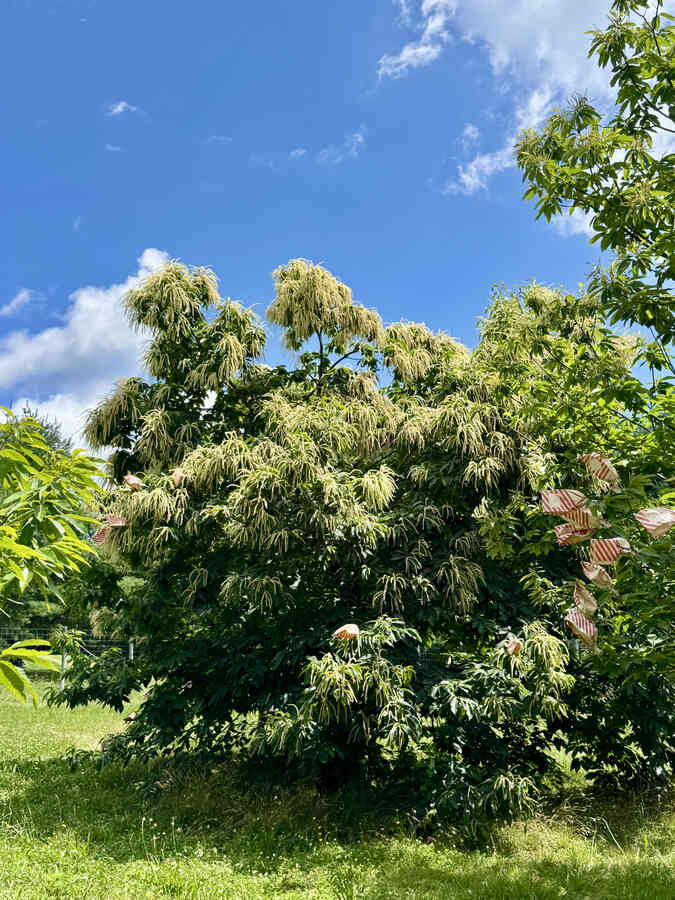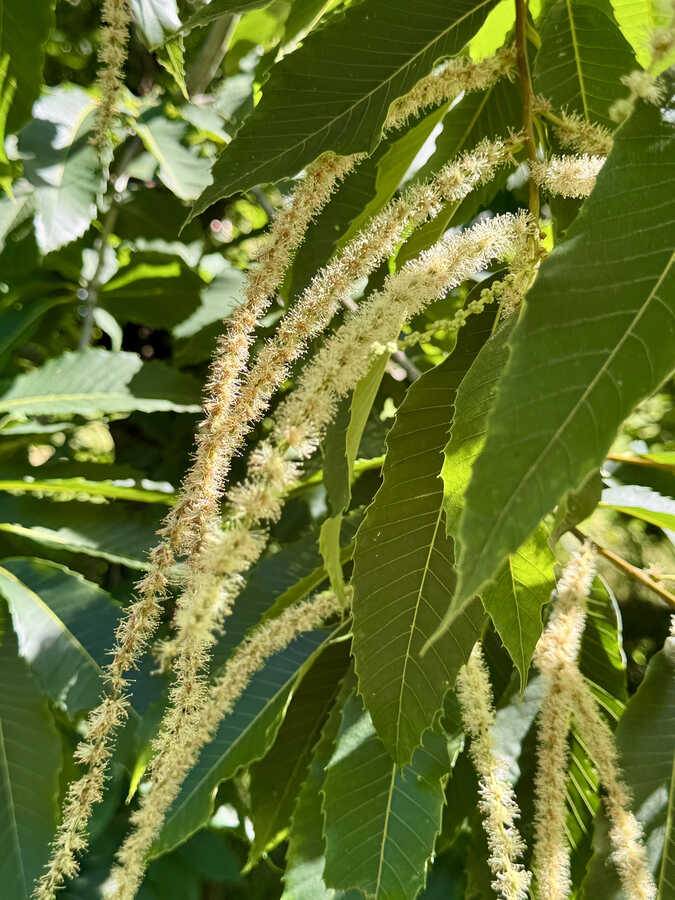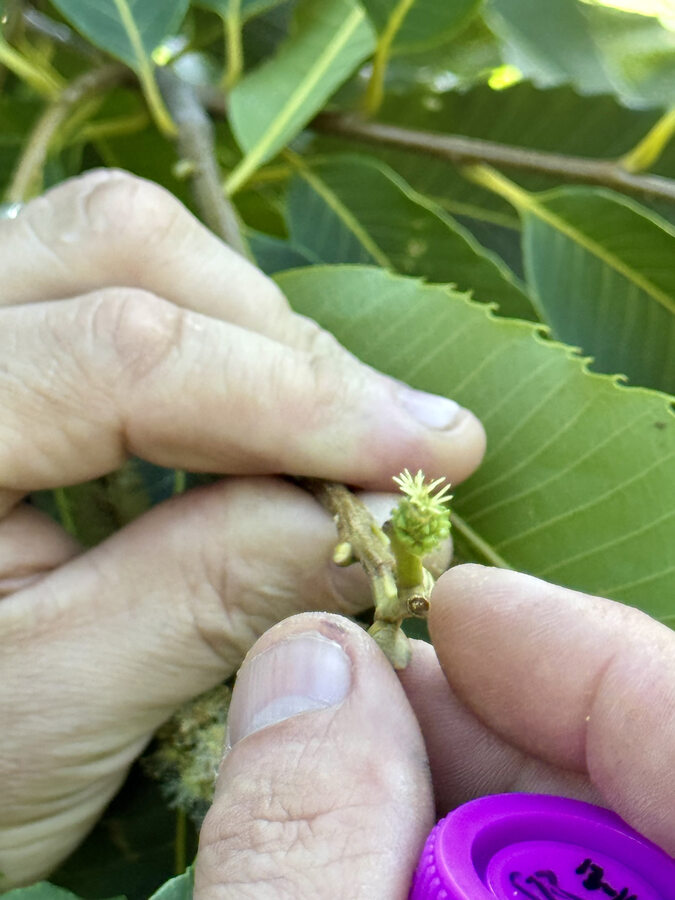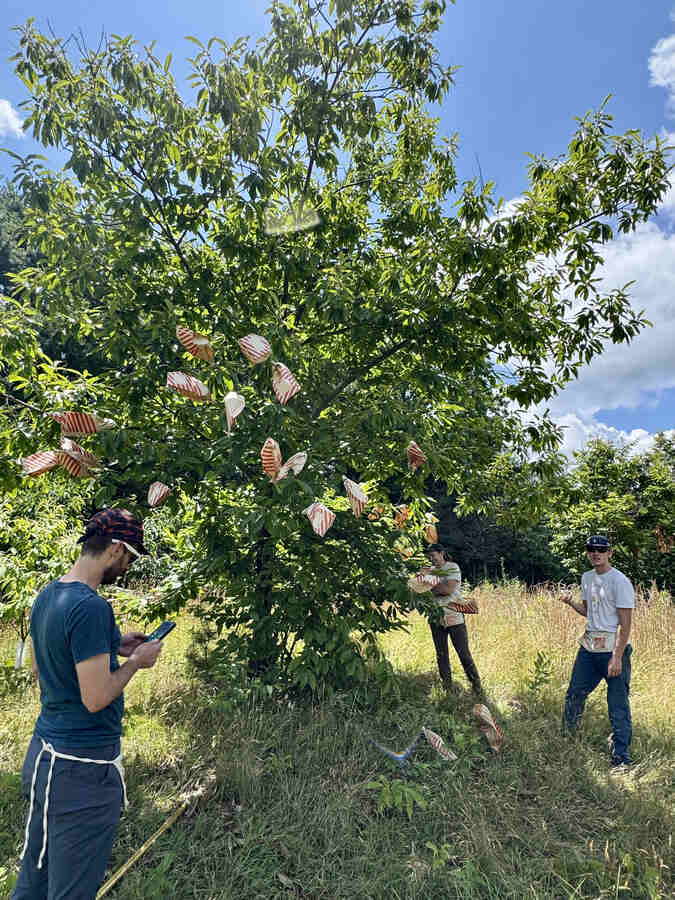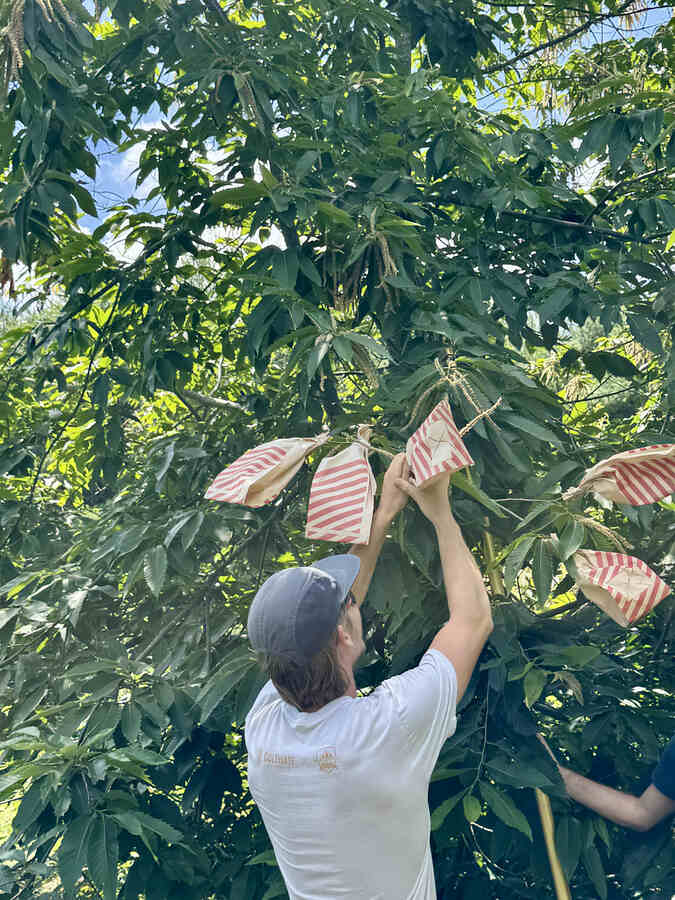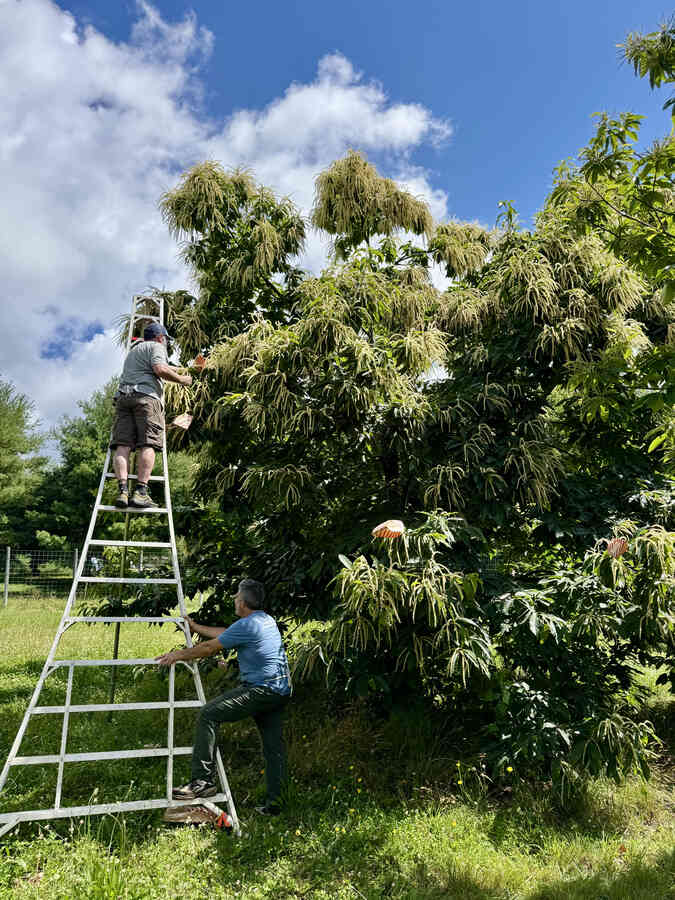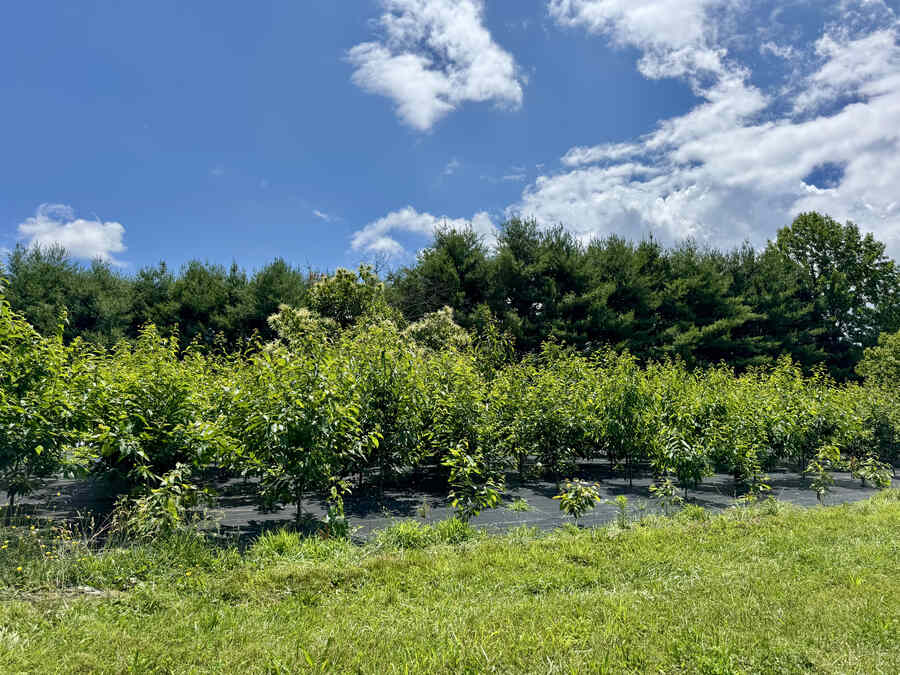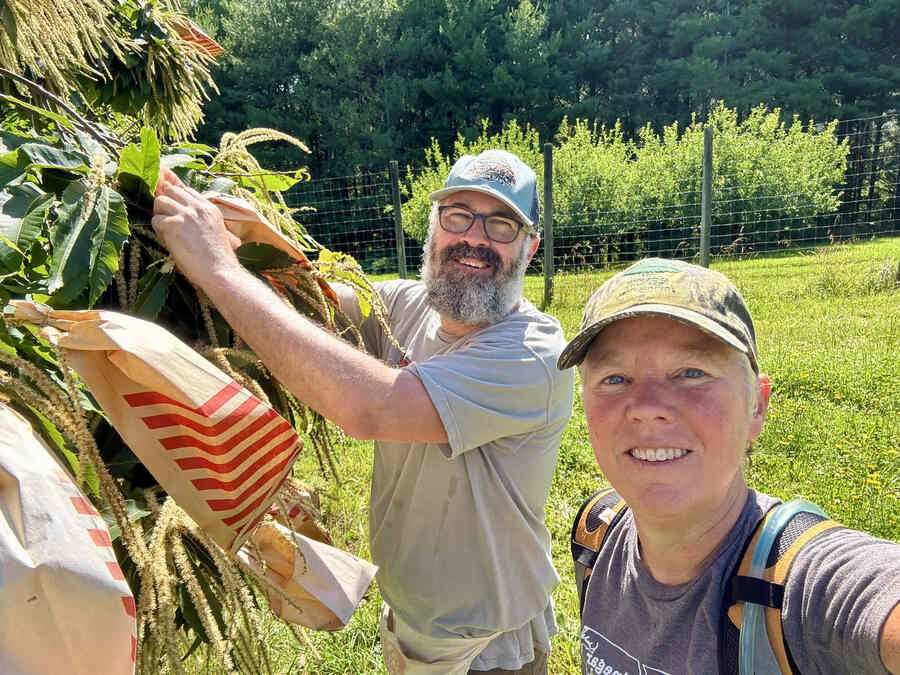
Jon Taylor and Jules Smith prepare to pollinate mature female chestnut flowers that have previously been bagged to allow for controlled crosses to be made. Pollen and mother trees were genetically selected for the first generation of Recurrent Genomic Selection (RGS) crosses.

Group picture. Participants included TACF Staff, Jen Picicci, Jules Smith, Jamie Van Clief (who took the picture), Jared Westbrook, and Warren Wilson Student Intern, Mateo Craven. Also, NC/SC Chapter Members, Jon Taylor, and Frank Southecorvo. Many thanks to all!
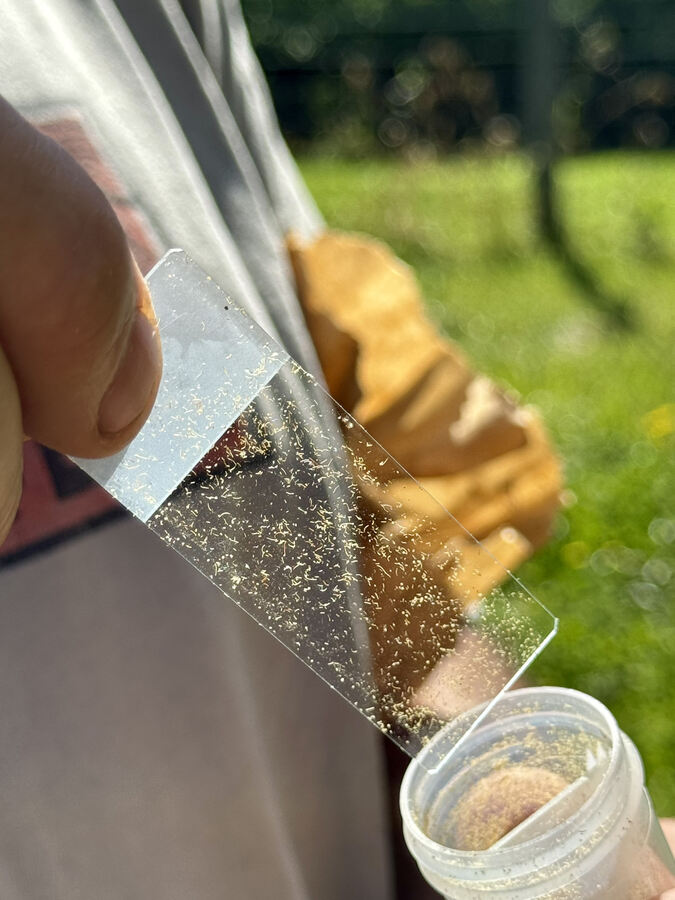
One method of transferring pollen to the female flower is to use a glass slide, dipped in pollen and gently rubbed on the female flower.

Most of the flowers were able to be reached without a ladder. As the trees grow taller, ladders or lifts are used to make crosses.
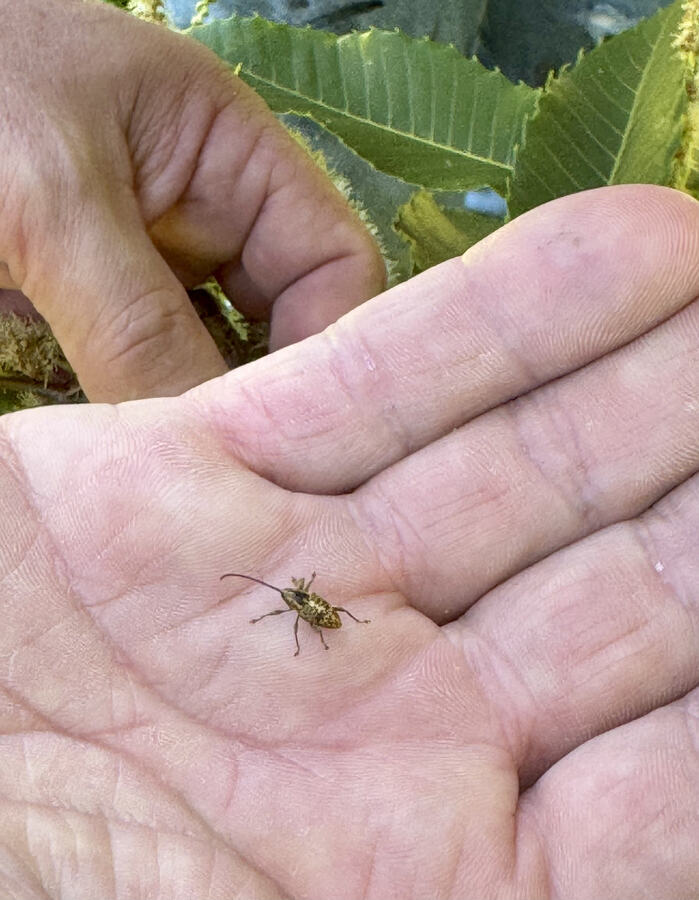
A chestnut weevil adult. Female chestnut weevils drill holes into developing nuts and lay eggs. Once the eggs hatch, the cream-colored larvae feed on the nuts.
The photos above were taken by Jules Smith.
Paul Sisco contributed by providing some of the pollen from another orchard for today’s pollinations.

